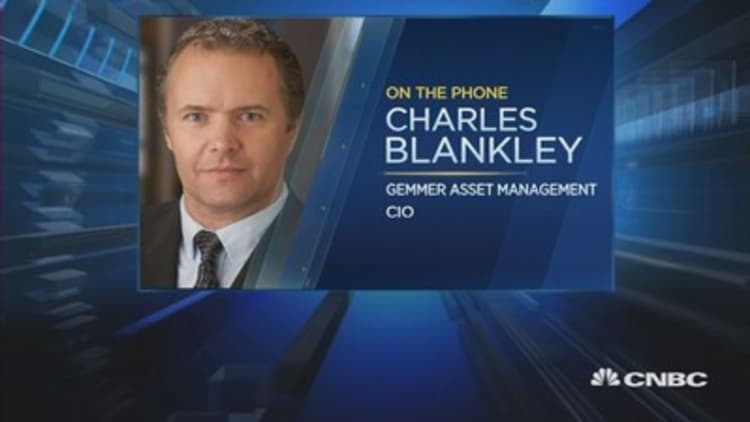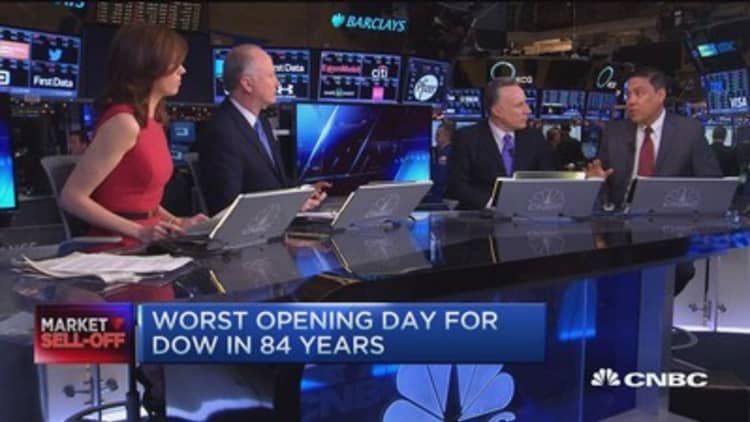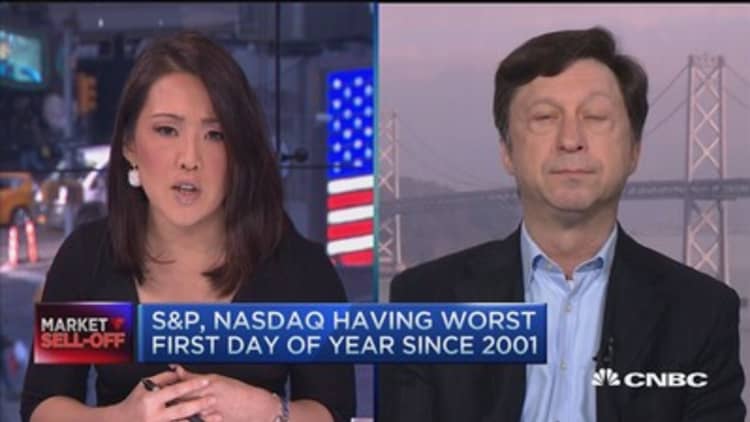


As the world's second-largest economy rings in the New Year with a stock market crash, investors are wondering whether Beijing will once again bring out its "National Team" to bolster jittery sentiment.
The Shanghai Composite tanked as much as 3 percent early Tuesday before paring losses, having tumbled 7 percent on Monday amid weak manufacturing surveys, a depreciating yuan, the introduction of circuit breakers and the upcoming lifting of a six-month ban on share sales by investors with holdings of 5 percent or more in a company.
The ban was implemented last year as part of Beijing's aggressive stabilization toolkit after the benchmark index lost trillions of its market value during a June-August rout. At that time, government officials also ordered state-owned brokerages and a coalition of financial institutions—dubbed the "National Team"—to buy shares, a move that came under sharp international criticism, with economists calling it "heavy-handed" and a blow to Beijing's international credibility.
But should the current turmoil persist, the National Team could make a comeback this year.
"There is a possibility that the authorities may intervene to prop up the markets via the National Team, but Beijing is arguably more concerned over growth than the stock market. Furthermore, it could look really bad if they have to throw in more measures when they are in the process of withdrawing the rescue measures," said Bernard Aw, IG market strategist.
The success of additional market interventions is also questionable.
"The government's National Team will cushion any blows in the short-term but it only stalls problems for the future," said Charles Blankley, chief investment officer at advisory firm Gemmer Asset Management.
"China doesn't have any new tools to prop up growth and markets so we're back to the same theme from the second-half of last year: continued slowing growth and what's proved to be fairly hand-fisted attempts to dampen volatility."
So far, Chinese news media has largely dismissed the selloff, suggesting that President Xi Jinping's administration may not be keen to provide a quick-fix this time around after last year's backlash.
That wait-and-see approach makes sense seeing as the biggest issue facing international investors is dimming confidence in the ability of Chinese authorities to manage both markets and the economy, Blankley warned.
"One interesting aspect is what, if any, measure to stabilize the market the government will resort to after last summer's poorly-received interventions," echoed Societe Generale economists in a note.
Even if the National Team doesn't make an appearance, market players are widely betting on more monetary stimulus.
"It is important to remember that if Chinese stocks continue to fall, the Chinese government will not hesitate to step in to turn the tide around. There's no question that the People's Bank of China (PBOC) will increase stimulus this year especially given recent developments," stated Kathy Lien, managing director of FX strategy at BK Asset Management.
The China Securities Regulatory Commission has already indicated it is willing to help boost markets. On Tuesday, the organization reportedly said it was considering new rules that would soften the blow from the ban on share sales due to expire on Friday, which is expected to result in a mass exit from equities by large investors
For now, strategists are at odds as to how long this week's rout will persist.
"It is too soon to tell whether the selloff will turn into a deeper correction because on one hand, part of the breakdown can be blamed on panic selling after circuit breakers kicked in and on the other China is experiencing a real slowdown," said Lien.
"The biggest opportunities are when the market is panicking, like now. We may have erased 2015 gains, but this market panic will be a short term thing," said Ken Peng, Asia investment strategist at Citi Private Bank.


